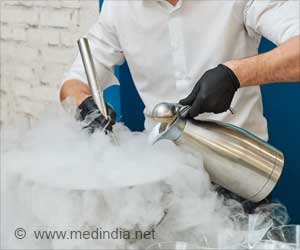- Ovarian cancer cells are drawn to the extracellular matrix of aged tissues, influencing their spread
- Senescence induced by chemotherapy may worsen outcomes in ovarian cancer
- Identifying matrix proteins and exploring senolytic drugs could shape innovative cancer therapies
Ageing in cells may boost ovarian cancer spread
Go to source). Researchers at the Indian Institute of Science (IISc) have now discovered that ovarian cancer cells exhibit a greater tendency to spread in aged or senescent tissues. This is due to these tissues secreting a unique extracellular matrix that attracts the cancer cells, facilitating their spread. The study, published in 'Cellular and Molecular Life Sciences,' utilized a chemotherapy-induced senescent model for investigation.
Senescence and its Impact on Cancer Outcomes
The team treated tissues from the lining of body cavities in mice models with cancer-fighting drugs, inducing senescence—a state where cells cease replication but don't die. By exposing both young and aged tissues, along with human tissue-like cell sheets, to ovarian cancer cells and using time-lapse imaging, they observed that cancer cells preferred settling on aged tissues, especially in proximity to aged normal cells.Experiments on human cell lines confirmed these findings, indicating that cancer cells adhered strongly to the aged ECM, displacing the aged cells. The aged ECM contained higher levels of specific proteins, such as fibronectin, laminin, and hyaluronan, enabling stronger binding of cancer cells.
Exploring Matrix Proteins and Senolytic Drugs for Innovative Cancer Treatments
The study suggests that this mechanism might contribute to the poorer outcomes in cancer among aged populations compared to younger ones. The researchers propose that careful use of chemotherapy is crucial, as chemotherapy itself induces senescence, potentially exacerbating the situation. They recommend exploring probes to identify matrix proteins, aiding in predicting cancer cell deposition in tissues.Looking ahead, the researchers suggest further studies to support the use of senolytic drugs, which eliminate senescent cells, as a combination therapy with chemotherapy to address cancer progression.
Reference:
- Ageing in cells may boost ovarian cancer spread - (https://iisc.ac.in/events/ageing-in-cells-may-boost-ovarian-cancer-spread/)
Source-Medindia
















